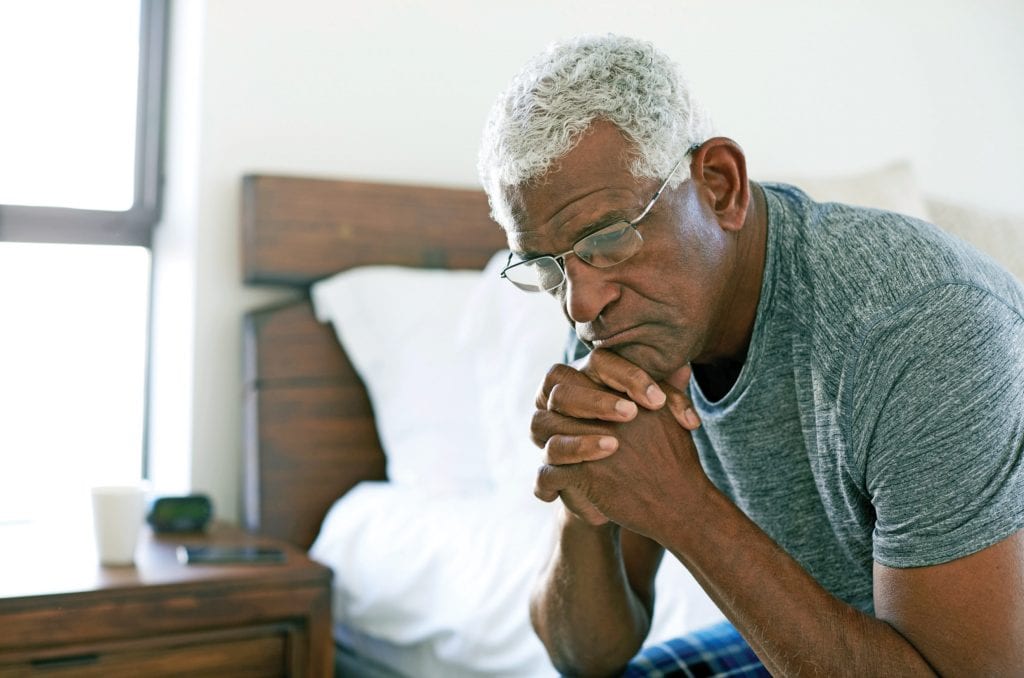Humans are social beings, and last year, COVID-19 showed us just how difficult isolation can be. The required social distancing measures put in place to ensure the physical health of the community took a toll on many people’s mental health. Older adults especially had to cope with increased loneliness in order to protect themselves from the virus. We reached out to Dr. Eric Lenze, the Wallace and Lucille Renard Professor of Psychiatry at Washington University, to learn more about the pandemic’s impact on mental well-being.
“We’ve all gone through a vast, unwanted natural experiment on the effects of social isolation and stress,” Lenze says. “Seniors were in an especially vulnerable position. They were most at risk for serious complications from the virus, but the isolation necessary to protect them sometimes caused negative impacts on their mental and cognitive health, including an increased risk of Alzheimer’s disease.” Early in the pandemic, Lenze and his colleagues assessed the mental health of a group of older adults with a history of depression. They found that overall, there was not an increase in depression or anxiety, indicating that the population had a resilient response to the pandemic.
However, as social distancing protocols continued, Lenze says there was an increase in mental health concerns. “The pandemic came on abruptly, much like any other natural disaster,” he notes. “We often see that people are pretty resilient in a crisis. Last March and April, there was a lot of uncertainty, but people didn’t feel demoralized at that point. As lockdown dragged on, we saw more problems with depression and anxiety, including in older adults.”
Social isolation has both objective and subjective components, Lenze explains. Social participation can be measured by contact with other people, such as family, friends and organizations, while loneliness refers to the individual’s perception of isolation. “They don’t always correlate with each other,” he says. “Loneliness especially is associated with negative emotional health and has an impact on cognitive function.” Seniors who report experiencing more social isolation have increased difficulty with their memory and other mental processes.
Along with consulting a medical professional about their mental health concerns, older adults can take steps themselves to alleviate social isolation. Lenze says that one of the easiest ways to do so is by participating in group activities. “Exercise classes are a great option because they benefit your overall well-being, including your mental health,” he notes. “Getting involved in any group activity that you would enjoy can be a good intervention.”
After experiencing a year of disruption, seniors may find themselves in a rut when it comes to socialization, especially if their normal events and activities have yet to resume. “We’ve gotten used to a new normal and have developed new habits, so it’s natural to question how to return to the way things were pre-pandemic,” Lenze says. “It’s similar to concerns younger adults may have about returning to the office or children to in-person school. Thankfully, since older adults have gotten vaccinated at the highest rates, they can safely start to socially reconnect.”
